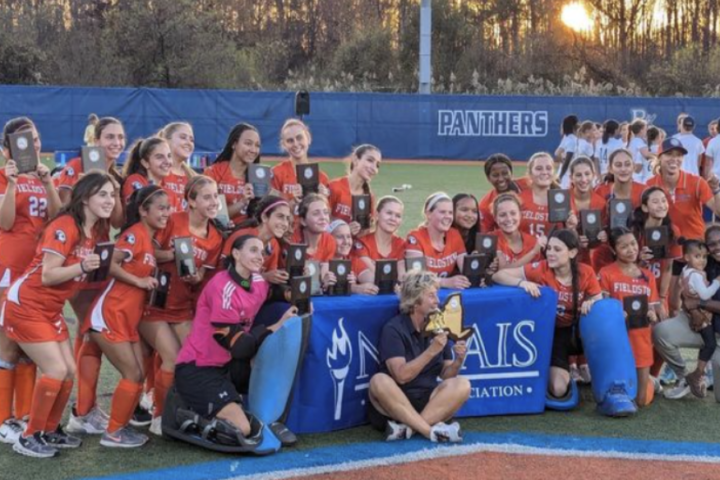It is difficult to describe the feelings that ran through me when I saw the nearly all-male stage of FSG president candidates last year: disappointment, regret, surprise quickly followed by cynicism, but mostly frustration. Frustration that this is how far we have come. The truth is that this issue of female representation in leadership runs far deeper than Fieldston Student Government. FSG is just one manifestation of the greater Patriarchy (a system in which men hold the power). Women account for roughly 20% of both the Senate and the House of Representatives. There have been 3 female faculty speakers in the last 20 years at Senior Dinners. In the last 30 years, approximately 69% of contenders for FSG president have been male; 37% have been all male pairs while less than 1% have been all female pairs. One out of four Fieldston principles are female. 6 out of 13 department heads are female, and out of the core subjects, just 1 out of 5 are female. Are we going to be content with this dismal representation of females in positions of power? Does Fieldston want to be less diverse than the Senate?
Although many classify this disparity in leadership as a “women’s issue,” women are not the only losers in a system that stifles female leaders. According to a recently conducted worldwide study, the most successful companies (measured by financial performance) had 27% female leadership, while the least successful companies had only 19% female leadership (after controlling for other factors). This disparity indicates that women have a style of leadership that is important for thriving companies. Furthermore, companies with more female leadership had consistently higher leadership ratings than companies with fewer women in power. Thus, the real winner if the mandate was passed would be Fieldston.
This issue is not simply one of numbers and facts. For me and many other women at Fieldston it is a deeply personal issue. It comes down to not feeling welcome in leadership positions in the school. Even when women are able to make it to leadership positions, there is a remarkable lack of respect and disproportional scrutiny compared to male leaders. In order to further explore the experiences of women in leadership, I spoke to two-year form representative Julia Rosenberg (Form V). In her experience, students are far more likely to approach her male counterpart, Jonathan Hazin, with proposals and student grant applications. Julia has also experienced meetings with Fieldston staff in which all of the responses to questions (posed by both Julia and Jonathan) have been directed to Jonathan. The only time that one staff member looked at Julia was to make a quip about childbearing.
Julia attributes some of her confidence in running for grade representative Sophomore year to the fact that there was a female representative (Ella Murray) the prior year: “Seeing a girl be a representative freshman year made me more comfortable to run later on. Seeing that she could be elected and that the grade was ready to have a female rep made me hopeful that I would be respected the same way she was.”
Interestingly, in leadership positions that are not elected through speeches there is far more female representation. Both representatives of the disciplinary committee (Sophie McNulty and Lena Haime) are female as well as 40% of cabinet members. This indicates that we must concentrate our efforts on FSG elections where students are elected by popular vote following their speeches.
Some claim that a mandate undercuts their freedom to run with whomever they want to. Where is our freedom though? Where is our freedom to feel respected running for FSG? Where is our freedom to vote for qualified women, when there are nearly none on the stage? Where is our freedom to feel represented by our government?
The only way that women will gain more respect in positions of leadership is if they consistently serve in these roles and get a chance to prove their competency. The lack of female leadership is a cyclical issue: women aren’t getting elected in part because there are few women running, and women aren’t running because they don’t see themselves getting elected. The best way to break the cycle is through a temporary mandate—it will encourage more women to run and it will instill faith in female leadership when those women are successful. In the words of Anita Hill, “progress is always made by a minority.” This is why I am not willing to sit and wait until the 73% of Fieldston boys, 67% of non-binary people, and 57% of Fieldston girls who oppose the mandate come around. I am not willing to sit through another round of roundtable discussions and polls. I am not willing to stand back while indefinite number graduating classes are deprived of the female leaders they deserve.
Thanks to Joe Polsky for helping to compile data.





